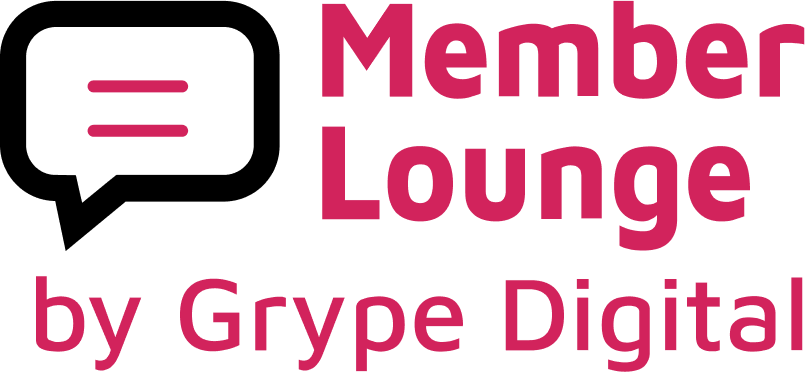Is Your Website Secure
Here is a scary statistic: half of all internet traffic comes from automated sources such as hacking tools, spammers, impersonators, and bots.
Hackers or malicious actors can easily target and damage unsecured websites. For websites, and membership sites in particular, a data breach or service interruption due to a hack can expose sensitive information. Your staff and members may have their private data compromised, impacting their sense of security and your organization’s reputation as a trusted place to be.
In this guide to website security updates, we’re going to provide you with the knowledge you need to keep your website protected.
For associations that do not have the in-house capability to maintain the security of your website and membership site, we are happy to offer regular security updates as a service to you.
If your team is ready to handle your website security in-house, please use our Website Security Measures Checklist as a resource.
How Does A Security Breach Impact Your Website?
Leaving your website vulnerable to cyber criminals can compromise years of client information in one lapse. For a web-based business, your livelihood is at stake. The association must actively maintain its reputation with clients and members.
There are several harmful things cyber criminals can do to significantly impact your website and membership site.
- They can steal your sensitive member data stored on your membership site by exploiting weak areas on your site, like an outdated plugin.
- They can replace your website’s content with their content to drive traffic to malicious websites and infect visitors with corrupt software.
- They may slow or even crash your website entirely, making it inaccessible to members.
- A long-term concern is that search engines may remove your website from their search results or flag it with a warning that the site has been previously hacked. That warning is enough to turn visitors away.
- The nuisance of maintaining your website and membership site’s security is not worth headaches at this level! Instead, start focusing on securing your website.
Website Security Vulnerabilities
Security updates for your website fix vulnerabilities in systems. Taking these measures ensures that unauthorized users cannot access your website data and prevents any potential exploitation of your site.
Cybercriminals are always looking for loopholes and vulnerabilities in websites and even content management systems (CMS for short) such as Drupal, WordPress, and CiviCRM. Patching any weak areas is crucial, and security updates play a role in delivering these patches.
Your website might get infected or re-injected when important security updates are not addressed. The easiest example of a common security update is the system prompts to update your software. Most software updates are created due to a security breach that has been discovered and fixed. Updating to the new version keeps your website safe from vulnerabilities.
Content Management Systems (CMS) Security
The same security concerns that exist for platforms used to build a website or membership site (including WordPress, Magento, Joomla, and Drupal) also apply to your CMS. Your CRM will alert you to any available updates that need to be implemented. Please do not ignore these warnings; every update fixes the loopholes of previous versions.
Website plugins
Before you add another plugin to your website or membership site, ask yourself: do you really need this plugin?
Before installing any plugin to your website, consider the possibility of the plugin being hacked and affecting the security of your website. Your website plugins truly support your work to be worth the risk. Only download plugins from well-rated developers in the community to avoid the risk of malware. Check for updates on the plugin and see how long ago the developer has patched any security issues.
Website Builder Themes
Along with plugins, website builder themes also need to be updated and monitored for security. Themes can become a source for malware that comes with back doors. As with plugins, we suggest downloading themes from a trusted source. Developers patch and fix the vulnerabilities in every update, so update your theme whenever a new security update is available.
Website Extensions
Your own computer can be the attack vector. Making sure your browser and its extensions are up to date is very important. Only install browser extensions and browsers from a trusted source and be sure to update immediately when you are alerted.
Web Server Security
Your website has a server that connects to the internet. However, your server can become vulnerable to hacks as cybercriminals may gain access by taking advantage of security vulnerabilities in the software packages it’s using. Proactively updating the software can patch security vulnerabilities. It is crucial to note that this responsibility lies with the company hosting your website. Therefore, be sure to check that your hosting company has these measures in place.
Cyber Security Protection
The following are a few simple tips that will help you to secure your website from cyber criminals.
Use A Firewall
The server your website is hosted on is used to connect the rest of the trusted internet to your online files. However, going at it unprotected lets potential viruses come too close to your website. That’s where a firewall comes in. Firewalls block unwanted requests from cyber criminals that don’t fit within the lines, helping prevent damage.
Install An SSL Certificate
Unencrypted data transfers allow cyber criminals to steal, intercept, or compromise your data. Additionally, by using an SSL certificate on your domain, you can protect your data as it travels between your server and the browser, making it useless to cybercriminals if intercepted.
Monitor your website
If a cybercriminal inserts malicious code on your website, it will undoubtedly disrupt the uptime of your site. However, with website monitoring in place, you can swiftly become aware of this issue. There are website monitoring tools you can use that inform the webmasters by text and email at frequent intervals.
Scan Your Computer
Your local computer may be a severe security threat to your website. You download files online or install executable files that seem trustworthy but can come with viruses. Some can steal your website’s logins and inject malicious files into your website. It is important to run deep scans of your machine on a regular basis with strong, reputable antivirus software.
Change Your Passwords Frequently
No matter what platform you build your website on, if you are using the same password for your web host, website admin, and local machine, this greatly increases the risk. Furthermore, as with any account, if someone can snag your password, they can load a slew of nasty files into your websites. For the best protection against that sort of attack, use different, strong passwords in each sector of your system.
Even if you are not able to do all the above security measures, at least implement SSL on your website, install a firewall in your server, and update your CMS, plugins, and server when alerts come in. Without these measures in place, you are inviting trouble to your site.
Learn More About Website Security
Book a call with us to learn about website maintenance and security plans.





